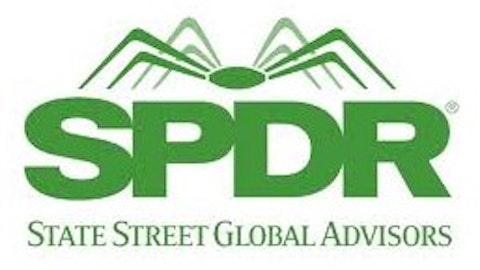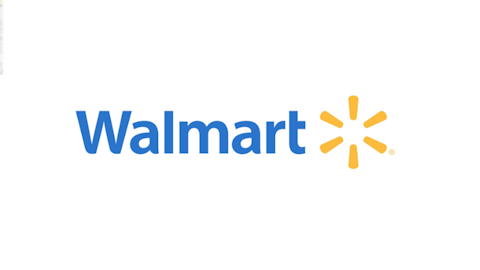
The hedge funds ran by Renaissance Technologies employ various mathematical models to execute and automate trades. One of Renaissance’s prized funds is the Medallion Fund, which is one of the best hedge funds we have come across—this fund also charges above average fees due to its stellar performance—5% fixed fee and a 44% performance fee.
In looking through Renaissance’s most recent 13F filing we find that Renaissance might be seeing many of the top large-cap stocks as overvalued, but the firm is finding value in certain tech companies, such as Microsoft and Intel, and certain pharma stocks, such as Eli Lilly and Bristol-Myers Squibb—all four are top five holdings in Renaissance’s 3Q 13F.
As noted, Apple Inc (NASDAQ:AAPL) was one of the top stocks RenTech was dumping during the third quarter, which ended on September 30th, having reduced its 2Q Apple stake by 60%, from 968,000 shares to 372,000. This move drops Apple from the top spot of Renaissance’s 13F and out of the top five. Being up over 45% year to date through 3Q, RenTech may well see Apple as having reached its peak for the time being, though the obvious tax-related play isn’t out of the question either.
Although the tech giant seems cheap at 12x earnings, Apple Inc (NASDAQ:AAPL)’s $500+ billion market cap means growth is increasingly hard to achieve. Sales growth is expected to slow from 45% in 2012, to 25% in 2013 and then 15% in 2014. In the years prior to 2009, Apple was awarded with a higher P/E multiple, but since this time a P/E of 12x-15x has become its historical norm. We believe that RenTech sees Apple shares as having reached a near-term top with sales of its iPad mini and iPhone 5 already heavily baked into the stock.
McDonald’s is another big name stock, and one of the most popular restaurant stocks amongst hedge funds that RenTech has decided to reduce its position in. The fund’s 2Q McDonald’s position included 5.2 million shares, but its latest 13F shows a 20% share reduction to 4.1 million shares, not quite as large as its Apple Inc (NASDAQ:AAPL) sale. McDonald’s, the largest fast-foot chain in the world, at 16x earnings appears cheap when compared to its top competitor Yum Brands, which trades at 21x. Unlike Yum’s beta of 0.9, McDonald’s has a beta of 0.4 that is indicative of its geographical diversification; this indicates the company can perform irrespective of a weak economy. The fund likely sees slowing growth in Asia as a headwind, but we see consumers’ caution leading to further ‘trade-down’ behavior, which would obviously help McDonald’s.
RenTech decided that Wal-Mart’s run up in 2Q, putting the retailer’s stock up over 15% year to date through 2Q, was good enough to lock in some gains. The fund sold over 50% of the shares owned at the end of 2Q during the third quarter, taking its ownership down to 1.7 million shares. We think Wal-Mart could be a good buy based on Sam Zell’s outlook at the Invest for Kids Conference. Based on Zell’s dismal outlook for the global economy, the investment thesis for Wal-Mart’s is driven by its 0.3 beta and low-priced discretionary and staple products. Helping sustain growth will be Wal-Mart’s plan to increase square footage through next year at 3-4%, with a renewed focus on smaller formats such as Neighborhood Markets. We believe that Wal-Mart’s ability to continue to grow and capture market share is not fully reflected in the shares, with Wal-Mart currently trading at 15x trailing earnings and only 13x forward earnings.
Although Simons’s former fund was relatively bullish on the pharma industry in 3Q, with prominent stakes in Eli Lilly and Bristol-Myers, it made a substantial sell of its Johnson & Johnson (NYSE:JNJ) position. RenTech sold off over 99% of its 2Q Johnson & Johnson shares, now owning only 46,000 shares compared to a previous 6.7 million. We agree that Johnson & Johnson might be overvalued at current levels. The healthcare company got a nice boost in its stock on the news it was acquiring Synthes Inc, but it now trades at 23x earnings, above major competitors Pfizer and Merck who trade around 19x. Johnson & Johnson’s current P/E is also well above its historical P/E of 15x. Assuming valuation levels come more in line, Johnson & Johnson would be a company worth considering, with a strong R&D pipeline and growing medical device and consumer products offerings.
Google Inc (NASDAQ:GOOG), much like the Apple Inc (NASDAQ:AAPL) selloff, was a large downsize for RenTech. In the third quarter, the fund sold off over 70% of its shares and now owns only 95,000, compared to 349,000 at the end of 2Q. If the fund’s behavior is any indication, management likely holds our concerns of Google’s slowing revenue growth and Motorola’s continued drag on earnings. The search company is trading in line on a historical P/E basis, but overall growth is the larger concern. Google grew earnings 21% annually over the last five years, but is only expected to growth EPS by 13% over the next half-decade. Notable headwinds include a rising cost of traffic acquisition and narrowing margins, both at Motorola and the overall lower ad margins received from mobile.
While we agree with many of RenTech’s moves to take some gains in what look to be decently valued companies, we believe that investors can still find solace in a couple of its selloffs. It appears that Apple Inc (NASDAQ:AAPL), Johnson & Johnson and Google may be better off in someone else’s portfolio, but two stocks we like given their defensive nature and industry leading positions are McDonald’s and Wal-Mart. McDonald’s still appears to be cheap and also pays a 3.5% dividend yield. Wal-Mart is also another company we still see value in given its geographical diversification and 2.2% dividend yield. Check out all of RenTech’s 13F portfolio holdings.





